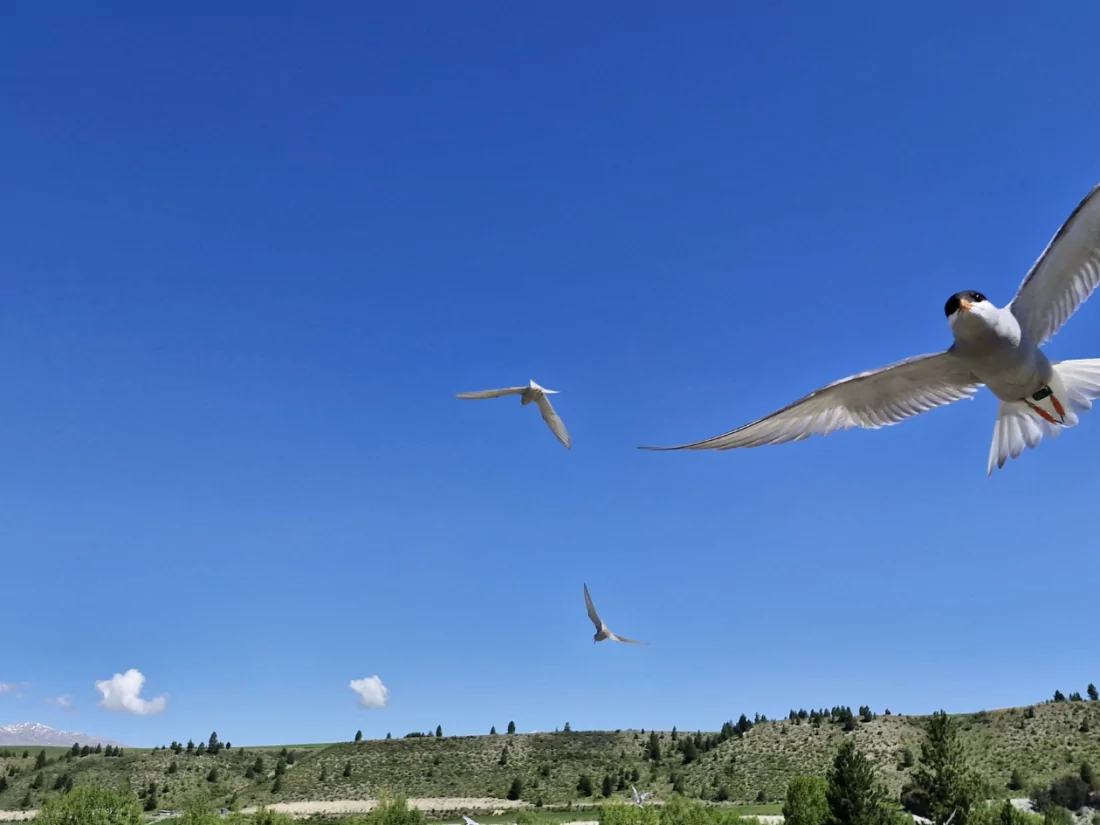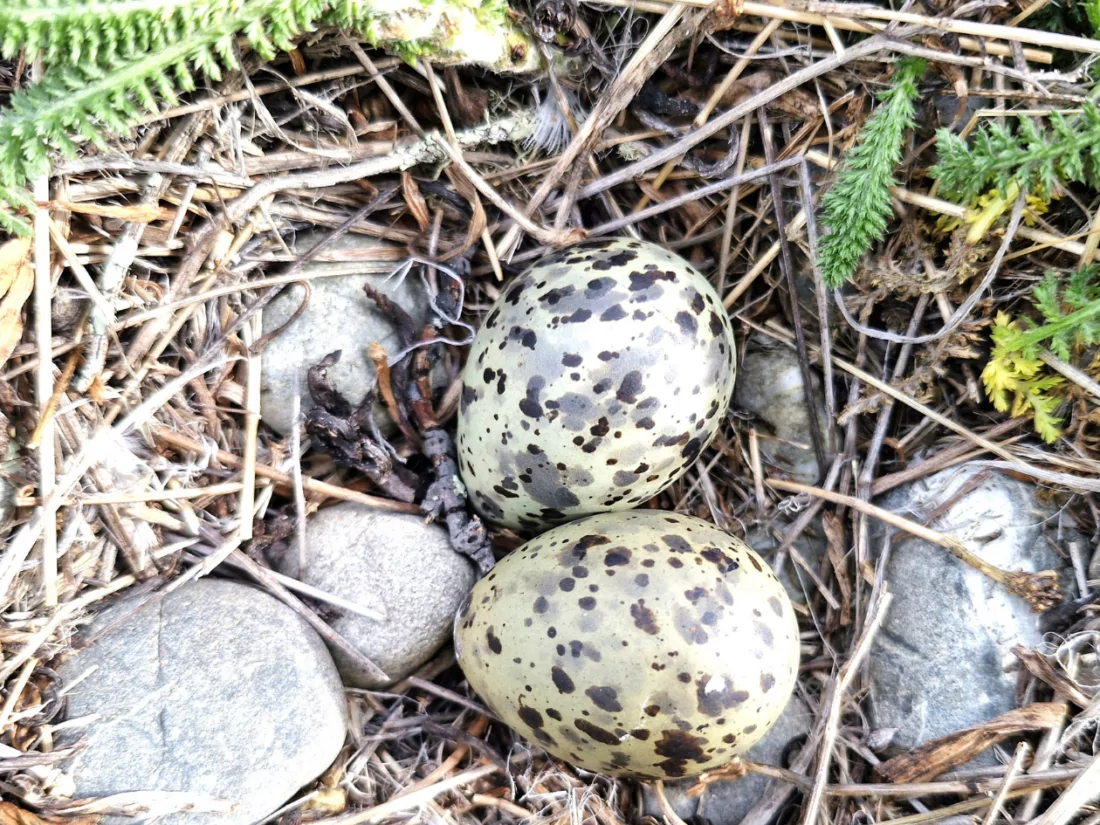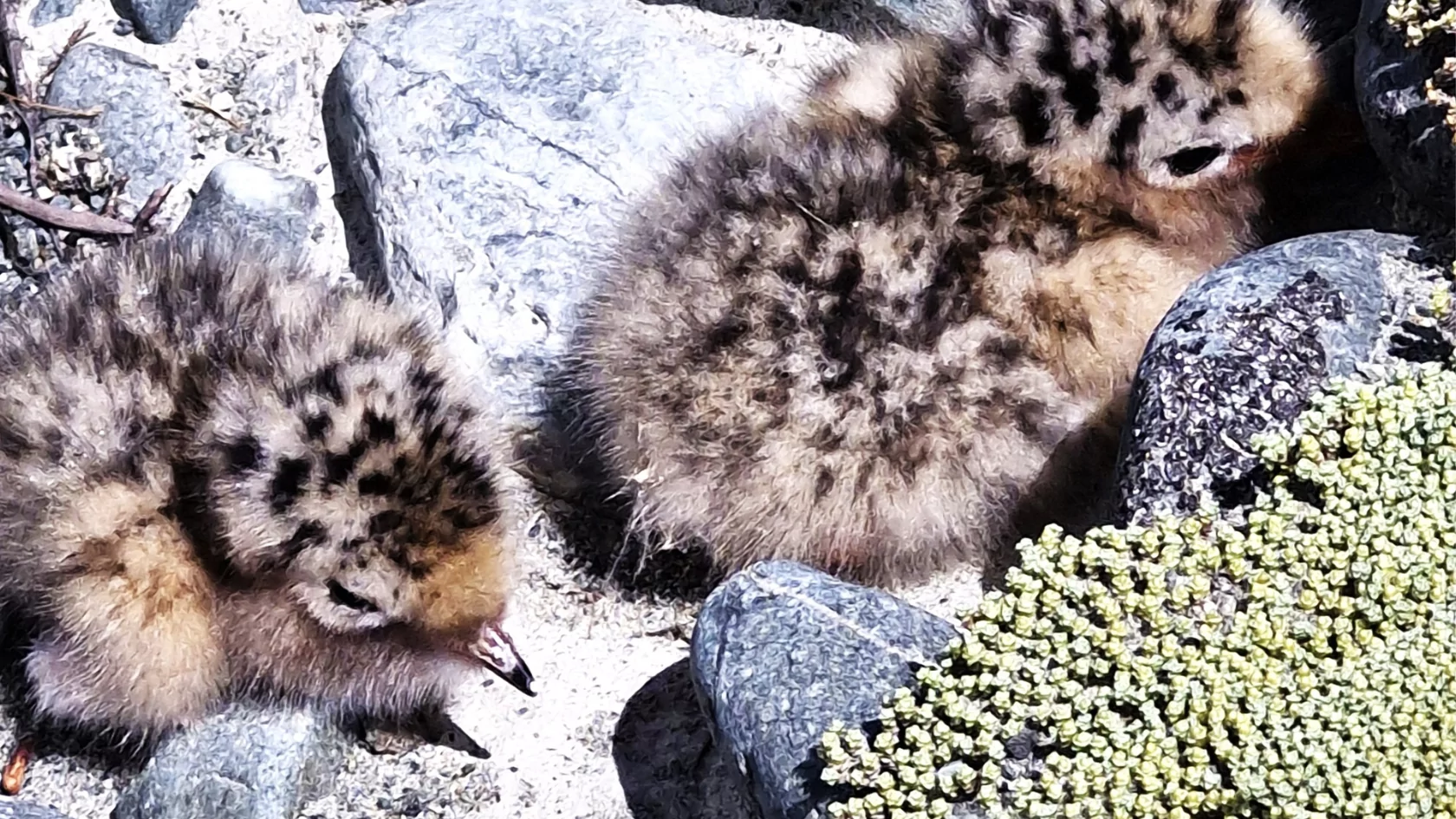A colony of nationally endangered black-fronted terns near Twizel has stunned conservationists by producing a record number of fledglings this season—despite being buried under 20cm of snow during an unseasonal October storm.
Known for their fragility and fierce resilience, the colony of around 700 birds in the Upper Ōhau River is the largest of its kind in the country. This year, the terns began the breeding season with an extraordinary 360 nests, a number Department of Conservation rangers could hardly believe.
“We were so stoked to have so many nests on the island, and no signs of depredation,” said Sam Turner, Biodiversity Ranger for DOC’s Project River Recovery.

Photo: Department of Conservation
But just as things were looking promising, a freak snowstorm blanketed the Mackenzie Basin and buried the island where the birds had nested.
“We checked our trail cameras and saw the parents had stayed on their nests until the very last moment. They were up to their necks but had to abandon the nests to save themselves,” said Turner. “It was impressive how hardy and dedicated the terns were, but heartbreaking to see the snow bury everything.”
Predators also remained a constant threat. “Norway rats are incredibly good swimmers. If even one makes it to the island while birds are incubating, it can cause a full colony abandonment,” he said. “For four years in a row, we had zero fledglings due to rats and other predators, so it’s always a stressful time.”
Remarkably, just over a week after the snowstorm, the birds returned and began laying eggs again—this time not just on the island, but also on a nearby terrace, which lacked natural defences against predators.
DOC rangers quickly mobilised. Temporary hedgehog barriers were installed, traps were set, and predator control was ramped up. When a stoat and her kits were detected, a conservation dog team was brought in to track them.

Photo: Department of Conservation
The extraordinary effort paid off: around 100 tern chicks successfully fledged and have now made their way to the coast for winter.
“It’s been such a rollercoaster season,” said Turner. “The snow dump was out of left field and at such a critical time, but these little birds pulled through with a bit of help from us. Watching them fly off was incredibly rewarding.”
Turner said the public should understand how rare and vulnerable the black-fronted terns are. “They’re only found in New Zealand. If we lose them, they’re gone for good.”
He added that invasive predators kill an estimated 25 million native birds every year in New Zealand, and extreme weather events are only making survival harder.
“Our job is to make sure these endangered birds have successful breeding years so they’re still around for generations to come.”









